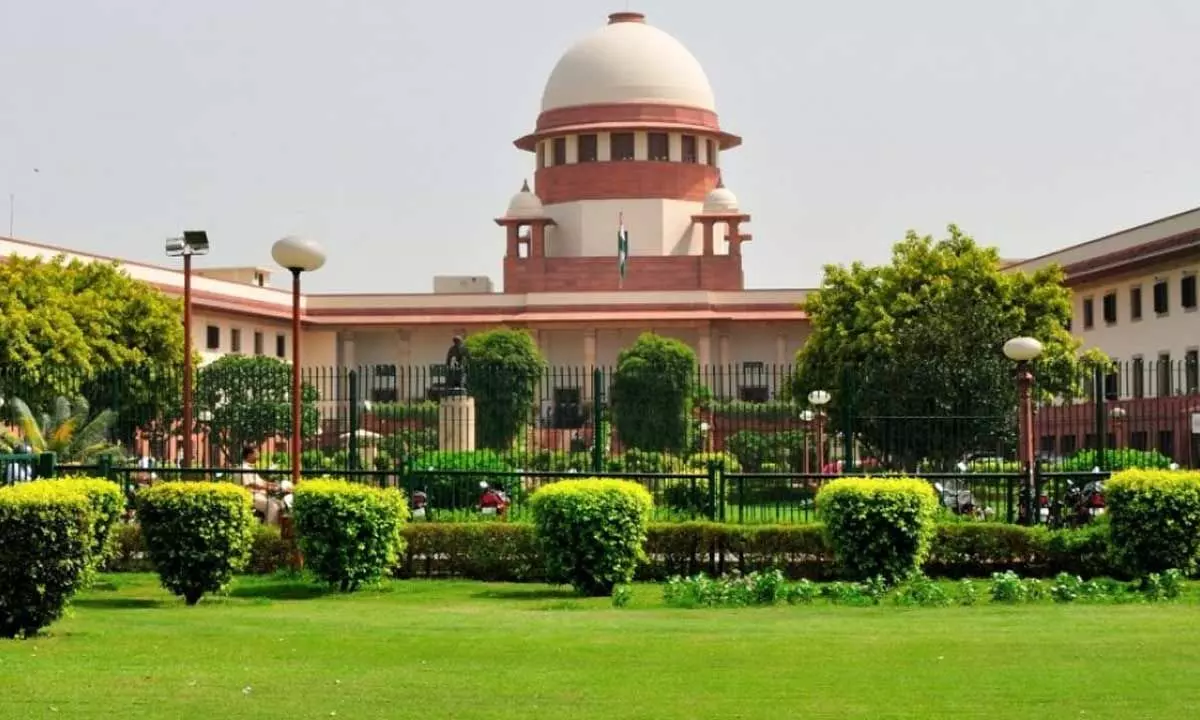SC rejects Oppn plea on misuse of ED, CBI

Supreme Court
Says politicians don’t enjoy higher immunity
New Delhi: A petition that accused Prime Minister Narendra Modi's government of abusing its power and using Central investigating agencies to harass its political rivals filed by 14 Opposition parties was turned down by the Supreme Court on Wednesday, which called it too broad.
"You please come back to us when you have an individual criminal case or group of cases," the court said, adding that "laying down general guidelines without having relation to facts of a case will be dangerous".
Filed by senior advocate Abhishek Manu Singhvi, the petition was a rare show of unity for India's splintered opposition and followed the disqualification of Congress leader Rahul Gandhi from parliament and the arrest of the Aam Aadmi Party's Manish Sisodia.
It claimed that there was a "drastic and exponential increase" in the number of cases registered by the Enforcement Directorate (ED) and the Central Bureau of Investigation (CBI) against opposition leaders since 2014 when Modi came to power.
Singhvi cited statistics to show that the ED had registered six times more cases in the last seven years than in the previous decade, but had a conviction rate of only 23 per cent. He also alleged that 95 per cent of the ED and CBI cases were against opposition leaders from across the country and that this was a clear indication of political vendetta and bias.
However, Chief Justice of India DY Chandrachud expressed doubts about the validity and feasibility of the petition. He asked Singhvi whether he was seeking immunity for opposition parties from investigation and prosecution, and whether they had any special rights as citizens. "Political leaders do not enjoy an immunity higher than the common citizens... once we accept that political leaders are absolutely on the same footing as common citizens with no higher immunity, then how can we say there can be no arrests unless there is a three-pronged test which is satisfied," the court said.
Singhvi clarified that he was not asking for any blanket protection or exemption for opposition leaders, but only for a fair and impartial application of the law. He said that the government was misusing its agencies to weaken and demoralise the opposition and that this was detrimental to democracy and the rule of law.
He also argued that the government was violating the "triple test" laid down by the Supreme Court for arresting accused persons, which requires reasonable grounds, necessity and proportionality. He said that many opposition leaders were being arrested without any evidence or justification, and that this was affecting their ability to perform their duties as elected representatives.
The Chief Justice, however, was not convinced by Singhvi's arguments and said that the petition was essentially a plea for politicians. The petition did not consider the rights and interests of other citizens who might be affected by corruption or criminality, Justice Chandrachud said.
He said that the Supreme Court could not lay down general guidelines or principles for just politicians, and that it would be more appropriate for individual cases to be brought before the court. He also suggested that Singhvi could raise his concerns in parliament.
Singhvi then decided to withdraw his petition, saying that he would come back to the court when there were more specific cases or instances of misuse of power by the government.














